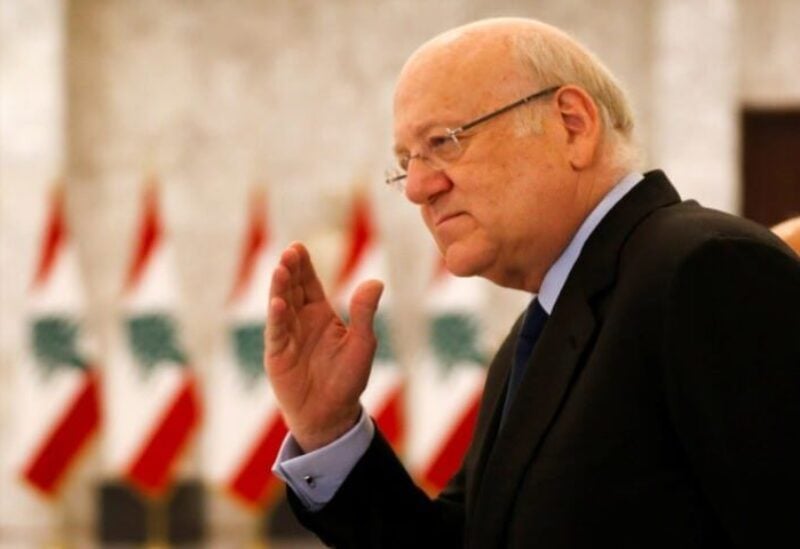
Prime Minister Najib Mikati
Prime Minister Najib Mikati stated Wednesday that the Lebanese government does not have a “magic wand” to tackle the country’s economic woes.
He made the remarks after meeting with the Greek Orthodox Metropolitan Bishop of Beirut, Elias Audi, and also discussed the issues plaguing the investigation into last year’s tragic port explosion.
Hezbollah and the Amal Movement have both called for Judge Tarek Bitar to be removed from the bomb inquiry, and both have threatened to boycott Cabinet meetings unless he is removed. To handle critical concerns, the prime minister has replaced Cabinet meetings with mini-ministerial meetings.
“We don’t have a magic wand,” Mikati remarked in response to requests for the government to play a role in rescuing Lebanon from its economic catastrophe. “We understand the citizens’ worries and are working to alleviate some of the pressures, particularly the living circumstances.”
He added that the Lebanese judiciary needed to assume its role fairly and adopt unified laws so that a result could be reached. “We support keeping Bitar in charge and we do not interfere in the judiciary.”
On Tuesday, a group of female activists stormed the Justice Palace in Beirut and sealed the office of Judge Habib Mezher in protest against his “illegal attempt to remove Bitar from the case and take over the confidential investigations.”
The Lebanese Judges Club urged politicians to stop interfering in the judiciary for the country’s sake, so that the judicial process could take its course without any abuse. “Otherwise, history will not be merciful,” it said.
Lebanon is also dealing with the ongoing diplomatic fallout resulting from the information minister’s comments about the war in Yemen.
The Arab League’s attempt to mend fences between Lebanon and Saudi Arabia has failed, after the body’s assistant secretary-general Hossam Zaki tried to mediate.
Hezbollah insists that Information Minister George Kordahi should not resign over the remarks.
Mikati reiterated that the brotherly ties between Lebanon and the Gulf states were a priority and he once again called on the minister to resign, stressing that “supreme national interest, in political affairs and in international relations, must prevail over factional and personal interests.”
He met Lebanon’s ambassadors to Saudi Arabia and Bahrain, Fawzi Kabbara and Miled Nammour, on Wednesday. They returned to Lebanon after the two Gulf countries ordered them to leave.
The two ambassadors expressed their fear of this crisis affecting the future of bilateral relations with the Gulf states and its repercussions on the interests of Lebanese expat communities.
They told Mikati that, upon their departure, Saudi and Bahraini officials had assured them of their deep concern for the close ties with Lebanon and for the solid friendship that bound them to the Lebanese people.
Both stressed it would be harder to restore ties the more time that passed.
Al-Qabas newspaper, quoting a Kuwaiti security source on Wednesday, reported: “The Kuwaiti Ministry of Interior has stopped issuing all kinds of visas to the Lebanese, until further notice, against the backdrop of the recent diplomatic crisis between the Gulf Cooperation Council countries and Lebanon.”
The source told the newspaper: “Lebanese with Kuwaiti residency are not included in the decision, and they have the right to return to the country. Visitor visas for families, tourists, businessmen and government officials, as well as work visas, will no longer be granted.”